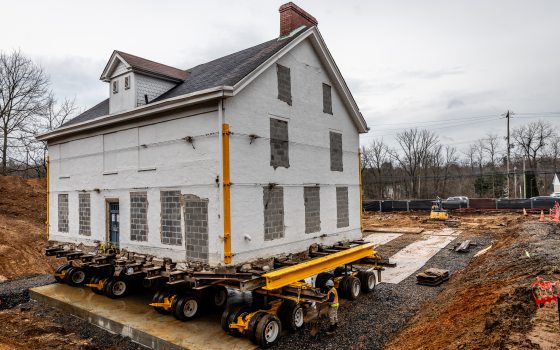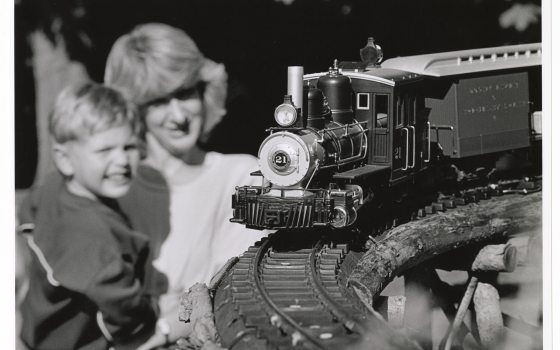At Longwood, we’re committed to preservation in all forms—including the preservation of the Cox House, a historic home that has witnessed two centuries of Brandywine Valley history and served as a stop on the Underground Railroad. Located on Longwood property just south of the entrance to our Gardens, the Cox House sits alongside Route 1 and, in response to the Pennsylvania Department of Transportation’s initiative to widen the road, Longwood made the decision to relocate the Cox House away from the road to ensure its ongoing preservation.
Built in the late 1700s, the house is named for John (1786-1880) and Hannah (1797-1876) Cox, Quaker farmers and social justice reformers who put their lives, property, and prosperity at risk by using their farm as a haven for escaped enslaved persons and assisting freedom-seekers to other safe houses along the Underground Railroad.
Recognizing the cultural significance of the Cox House, its ties to the Underground Railroad, and its present-day reminder of the immense role and activism the Chester County community played in the Underground Railroad movement, Longwood acquired the house in 2001—and, with the relocation of the move away from the road, which took place on February 28, we continue to prioritize and safeguard its preservation.
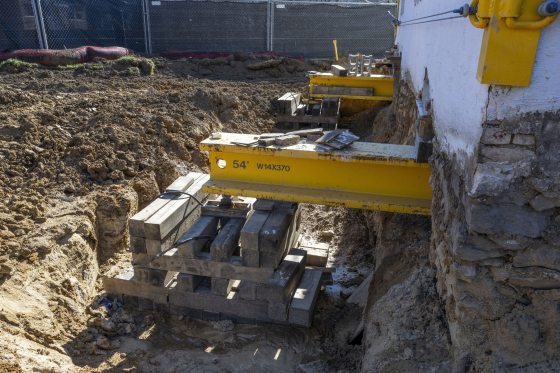
While thorough preparations for moving the Cox House began months in advance, the actual move took only a few hours. Photo by Hank Davis.
While the move on February 28 only took only a few hours, the process of moving the Cox House has involved thorough preparations, including the creation of a foundation that mirrors the original in size and configuration. Wolfe House and Building Movers raised the house from its original foundation, placed it on temporary rails, and carefully transported it 100 feet behind its initial location. Steel cables, temporary walls, and careful bracing ensured the house's integrity throughout the journey.
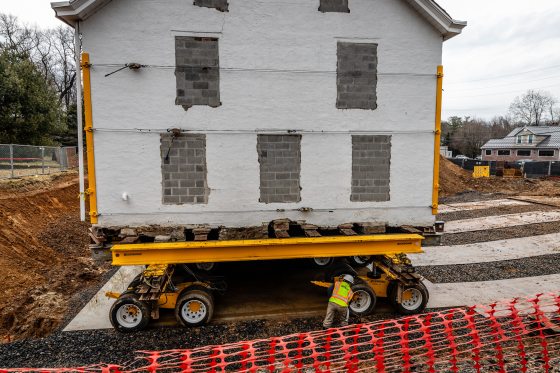
The Cox House makes its way to its new location on February 28. Photo by Richard Donham.
The Cox House's relocation is not merely a physical transition—it carries with it the legacy of generations past. Originally constructed in the early 1790s, the home underwent significant modifications in the 1840s and 1920s. With a footprint of about 1,300 square feet, the home today consists of basement, first and second floors, and an attic.
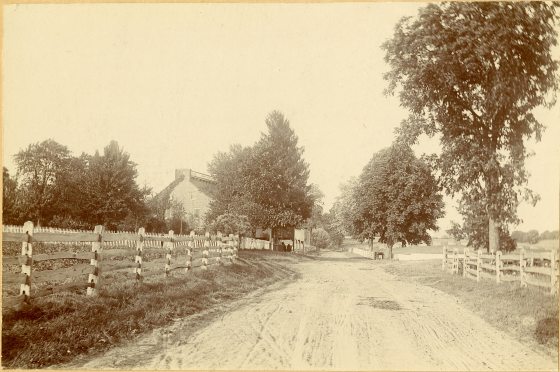
19th century photograph of Route 1, then a quiet dirt road, near the Cox House and Longwood Farm looking east. The house’s roof is clearly visible between the trees to the left.
While John and Hannah Cox resided there and raised a family on their prosperous farm (then known as the Longwood Farm, which would be the source of Longwood Gardens’ name), they both were deeply involved in Progressive social movements of the mid-19th century, including regional and national organizations for abolition, women’s rights, and temperance. while actively transporting these freedom seekers to other safe houses along the Underground Railroad. Though Underground Railroad tunnels were rumored to be connected to the house, a comprehensive historical structures report commissioned by Longwood found no evidence of tunnels.
After joining forces with other likeminded local Quakers and national leaders of reform movements in 1853 to create a new religious society known as the Pennsylvania Yearly Meeting of Progressive Friends, they divided their land, selling a small portion in 1854 to the new religious society which would soon become home to the Longwood Progressive Friends Meeting House. In 1855, they would sell 2 acres across from the Longwood Progressive Friends Meeting House to the newly formed Longwood Cemetery Company. You can read more about the history and evolution of the Cox House in this 2022 blog post.
With the Cox House now settled into its new location, Longwood has no immediate plans to open it to the public. However, as a steward of the past, present, and future, our decision to preserve the Cox House ensures that we continue to tell the powerful and complicated story of the Underground Railroad here in Chester County. that the presence of this historic home continues to enrich the narrative of the Brandywine Valley for generations to come.
